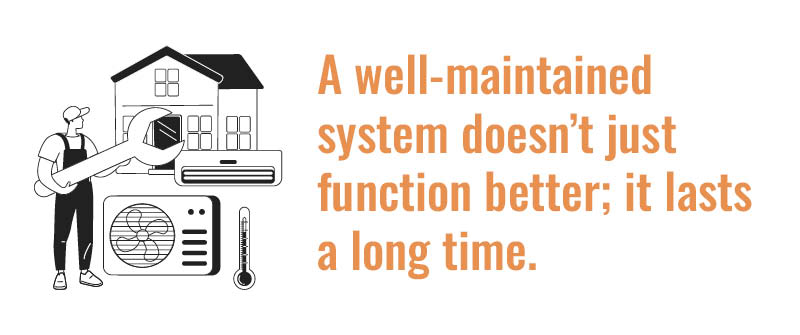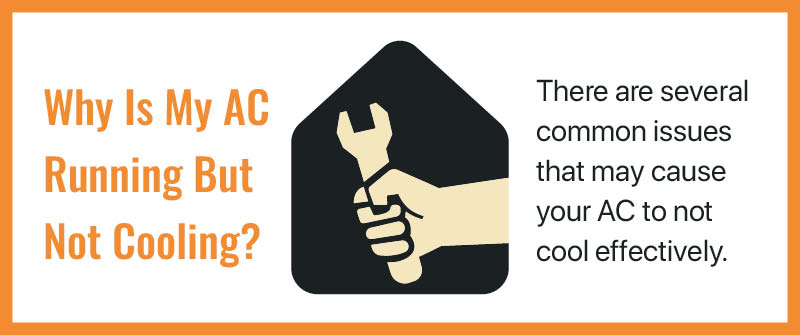How Many Years Should An AC Last?
How Many Years Should an AC Last? Understanding the Average Life Expectancy
Many homeowners in Central Indiana wonder about the air conditioner life expectancy of their air conditioning units, especially considering the investment involved. On average, a central air conditioning system, if well maintained, can last between 10 and 15 years. However, this varies based on several factors, including maintenance practices, usage patterns, local climate, and even the make and model of the unit. AC repair and servicing can help determine how long AC units last under different conditions.
Factors Influencing Air Conditioner Life Expectancy
For instance, proper maintenance is crucial in prolonging the life expectancy of an air conditioner. A well-maintained system doesn’t just function better; it lasts a long time. Maintaining the outdoor AC unit is essential to prevent damage from environmental factors like debris and salty sea air. That means regular cleanings, timely filter changes, and annual checkups. Usage patterns also play a significant role—an AC unit running continuously throughout the summer months might not last as long as one used sparingly. Moreover, climate can impact longevity; in regions with extreme weather conditions, units often have to work harder, leading to a shorter lifespan.

Different Types of Air Conditioners
Beyond central air systems, other air conditioners, like split ACs and window units, offer different lifespans. For instance, split air conditioners, known for their efficiency and energy-saving capabilities, typically see a lifespan of 15 years when well-maintained. Comparatively, window air conditioners may have a slightly shorter lifespan, often around 8-12 years, due to their compact design and external exposure.
Recognizing the longevity of each air conditioning type allows homeowners to better plan for maintenance and eventual replacement, leading to a more comfortable home environment and potentially lowered energy costs.
How Often Does an AC Unit Need to Be Replaced?
General Guidelines on Replacement Frequency and Proper Maintenance
The lifespan of your air conditioning system largely depends on several factors, including the make and model, how often it’s used, and how well it’s been maintained. Generally, central air conditioning systems in Central Indiana are expected to last between 10 to 15 years under optimal conditions. This typical lifespan is based on regular usage and consistent AC maintenance, which helps extend its operational period.
However, some systems may show signs of wear or inefficiency sooner if they have not been maintained properly or have been subjected to extensive use. As soon as your AC approaches the 10-year mark, it’s wise to consider potential replacements to avoid dealing with breakdowns during the peak summer months.
Signals That Indicate the Need for AC Replacement
As your air conditioner ages, there will be clear indicators that point towards the necessity for a replacement. The potential surprise of having a broken air conditioner during peak summer months can be particularly inconvenient. Frequent and costly repairs are often the first signs. Investing in a new unit might be more economical if you’re spending a lot of money on regular repairs.
Decreasing efficiency is another indicator. Older units tend to work harder to maintain the desired temperature, leading to higher energy bills. Additionally, if your AC fails to cool rooms uniformly or requires the thermostat to be set lower than usual, it’s a sign that the system is no longer performing optimally.
Lastly, if your air conditioning system is older than 10-15 years, it might lack the efficiency and environmental standards of newer models, which is crucial not just for functionality but also for the eco-footprint.
Differences in Replacement Frequency Based on Location and Salty Sea Air
Your geographical location can also impact how frequently you need to replace your AC unit. For instance, in states like Florida and Texas, where air conditioners work harder due to prolonged summer seasons and higher humidity levels, systems might need replacement sooner than in Central Indiana due to the increased wear and tear. Additionally, in coastal areas, the salty sea air can erode the condensing coils over time, significantly impacting the lifespan of an old AC unit.
The climate in Central Indiana varies significantly, with warm summers and cold winters. This variation allows AC units to rest during the off-season, potentially extending their lifespan compared with units in warmer states where they are constantly in use. Nevertheless, Central Indiana homeowners should maintain regular maintenance schedules to ensure longevity and efficiency.
Why Is My AC Running But Not Cooling?
There’s nothing quite as frustrating as an HVAC system that’s running but not delivering the cold air you expect, especially during sweltering summer days. If you’ve encountered this issue, you’re not alone, and understanding the common culprits and solutions can save you both time and money.
Common Reasons for Cooling Issues
There are several common issues that may cause your AC to not cool effectively. One major culprit is a refrigerant leak. Refrigerant is essential for the cooling process, and a leak can significantly compromise your unit’s ability to cool your home. You may also have a dirty air filter, which restricts airflow and limits cooling efficiency. Neglecting to regularly replace air filters can exacerbate issues related to dust, mold, and overall ventilation in the home, potentially leading to increased health concerns and discomfort. Over time, filters can become clogged with dirt and debris, reducing airflow into your AC system and causing it to work harder than it should.
Another potential issue could be a malfunctioning thermostat. Sometimes, it’s as simple as your thermostat being set incorrectly or failing entirely, wrongly signaling your unit to reduce cooling output. Lastly, ensure your outdoor condenser unit is unhindered by debris, reducing airflow into your AC system and causing it to work harder than it should—demonstrating how much a central air conditioner depends on proper airflow.
Initial Troubleshooting Tips
Before calling in the professionals, try these troubleshooting tips. First, check your thermostat to ensure it’s set to the correct mode and temperature. It sounds simple, but it’s a surprisingly common culprit. Next, inspect your air filter and replace it if it’s visibly dirty or over three months old. Doing so can improve air quality and is an inexpensive way to potentially rectify the issue.
Also, examine the outdoor unit to ensure no debris is blocking it. Removing obstructions can sometimes instantly improve your AC’s cooling performance. Additionally, check the circuit breaker to ensure it’s not tripped and disabling your system.
When to Call a Professional
If these steps don’t resolve the problem, it might be time to call the experts. If your current system is beyond repair, you may need to consider a new heat pump or air conditioning unit. Refrigerant issues, electrical problems, and other complex malfunctions demand professional attention to ensure safety and an effective resolution. Experienced technicians can diagnose the underlying cause of cooling failures and recommend the best course of action, whether that involves repair or replacement.
When your AC troubleshooting efforts fail, trust B&W Heating, Cooling, Plumbing, and Electric to restore your home’s comfort. Our dedicated team in Central Indiana delivers prompt, reliable service designed to keep your cooling system running smoothly all summer long. Book an appointment with B&W today!

